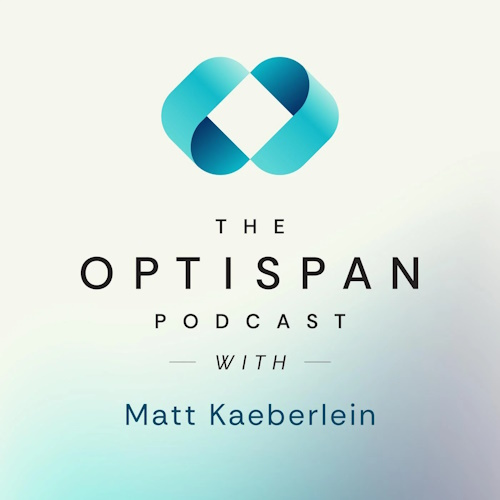DNA Damage, Senescence & Apoptosis
Matt and Aditi discuss about senescent cells and its relevance to ageing
In May 2024, Matt delivered a talk at the Glenn AFAR Grantee Conference in Santa Barbara, where he met with experts in the longevity field, including Aditi Gurkar, an assistant professor at the University of Pittsburgh's Aging Institute. Aditi's lab researches the impact of DNA damage on aging, building on her experience from Scripps Research and her postdoctoral work at Massachusetts General Hospital/Harvard Medical School. In this episode, Matt and Aditi delve into the role of senescent cells in aging, discussing how she developed her focus on cellular senescence, the potential therapeutic benefits of clearing these cells, and the challenges in defining them. They also explore the broader importance of looking beyond narrow research focuses in geroscience and the value of challenging existing scientific models to uncover new directions.
Key points
In this podcast, Matt and Aditi discuss Aditi's focus on cellular senescence, its role in ageing, the potential benefits of clearing senescent cells, and the ongoing debate on how to define them.
- Introduction to Senescent Cells: The discussion revolves around senescent cells, which are cells that stop dividing but don't die. These cells accumulate with age and are linked to age-related diseases.
- Research Background: Aditi, the guest, has a background in oncology but shifted focus to study ageing after realizing that studying diseases in young models doesn't translate well to older, human conditions.
- Healthspan vs. Lifespan: The difference between living longer (lifespan) and living healthier (healthspan) is highlighted. Aditi emphasizes the importance of focusing on healthspan, as people can have similar lifespans but very different health experiences.
- DNA Damage and Ageing: Aditi's research focuses on DNA damage, which accumulates over time and contributes to ageing. Unlike other cellular components, DNA cannot be replaced or repaired as effectively, making it a key factor in ageing.
- Reprogramming Cells: There's a debate in the scientific community about whether reprogramming cells can reverse ageing. While some believe it can reverse many ageing aspects, Aditi notes that DNA damage may limit the effectiveness of such interventions.
- Senescent Cells and Inflammation: Senescent cells release various substances, including inflammatory molecules, contributing to chronic inflammation seen in ageing. This inflammation can drive age-related diseases.
- Senescent Cells in Wound Healing: Senescent cells can have beneficial roles, such as promoting wound healing by releasing signals that attract immune cells to the wound site. However, their accumulation over time can lead to harmful effects.
- Challenges in Defining Senescent Cells: There's ongoing research to better define what exactly constitutes a senescent cell. Current markers focus on cells that have permanently exited the cell cycle and release specific factors, but this definition is still evolving.
- Potential of Reprogramming Senescent Cells: The idea of reprogramming senescent cells is still in its early stages, with mixed results. Some studies suggest that while these cells may not re-enter the cell cycle, they can influence nearby cells positively during reprogramming.
Visit website: https://www.youtube.com/watch?v=-CLu7rQBZ6M
See alsoDetails last updated 09-Aug-2024




